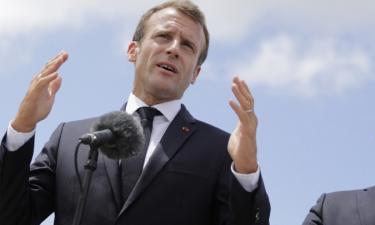Russia and Germany: falling apart?
The United States reportedly assumed the role of a chief advocate of 'freedoms'
Lots of things at the international scene seemed to be changing and forecasts were about to come true as Gerhard Schroeder tendered his resignation and new Chancellor Angela Merkel was sworn.
These days Berlin is looking in a different direction. The friendly relationship between Russia and Germany is becoming history. The relationship is going be “corrected.” The difference between Merkel and her predecessor is obvious. The question is: Will that difference bring about a new course of the new German government?
Chancellor Angela Merkel arrived in Washington at the end of last week. She discussed with President George W. Bush issues relating to further cooperation between the two countries. One could not but notice that U.S. administration has become particularly well-disposed toward Germany a mere two months after Angela Merkel took over office.
Despite being at the wheel for such a short time, Merkel did a fine of job of smoothing over the long-standing divergence of opinions between the two countries. Taking into account that Germany has always been a stability-oriented country, it is worthy of note that Merkel has laid special emphasis on various freedoms in her first statements as a new Chancellor. The United States reportedly assumed the role of a chief advocate of “freedoms.” At a time when the U.S. needs a strong ally most, Washington promptly praised the new Chancellor's position. As regards Iraq, the German government does not cut the States to the quick while touching on such a sensitive issue. “She was never in favor of sending German troops to Iraq. On the other hand, she was always quite skeptical about Schroeder's stance on the issue,” said Karsten Voigt, a member of the Social Democratic Party.
Angela Merkel is ready to actively develop multilateral cooperation including the transatlantic alliance. One should not forget that during her first state visit to Brussels, Merkel pointed out to the importance of NATO as a powerful strategic institution providing security in different parts of the world. Judging by the first two months of Merkel's chancellorship, the United States and Germany seem to share or have similar views on many issues.
Angela Merkel does not show such an unambiguous attitude toward Russia. Speaking to Spiegel, she said that current relations between Berlin and Moscow were the full-fledged “friendly” relations. “In my opinion, calling them a “strategic partnership” would be more appropriate,” said Merkel. “So far we and Russians do not have many common values to share the way we and the States do,” added she. Looks like the situation in Russia’s democratic reforms will soon be the biggest concern of the German government thanks to Merkel's efforts.
It should be noted that both Germany and the United States paid attention to a recent natural gas dispute between Russia and Ukraine. According to the Western media, Europe realized how dangerous the “heavy reliance on the Russian energy exports” could be. U.S. Secretary of State Condoleezza Rice virtually accused Russia of showing bias and putting pressure on Ukraine. The States called the dispute a politically motivated move by Moscow.
Germany is quite concerned about the issue since 30% of its gas imports come from Russia. Few analysts doubt that Russia will play an increasingly bigger role in terms of energy supplies to the West. Europeans are now showing more interest in the North European Gas Pipeline project. They want to know: for how long gas will be available in the Siberian gas fields?
Angela Merkel intends to visit Moscow after meeting with George W. Bush. During her meeting with Vladimir Putin, slated for January 16, she is hoping to discuss the gas dispute and its aftermath.
According to many experts, one should not overestimate possible “deviations” of the German foreign policy and German Chancellor's statements. Merkel said that her country was interested in “good and stable relations with Russia.” The statement could indicate that Berlin is not going to build its relationship with Washington on the Russian “bones.” Merkel can also appreciate that a rapid rapprochement with the U.S. is likely to result in irrevocable consequences. “A pro-American course is very unpopular in Germany; Merkel's attempts to pull off a quick swing to the United States will lead to a drop in popularity of the Christian Democrats,” said Sergei Markov, a political scientist. Consequently, the country may face a new political crisis that could be beneficial only to the Social Democrats. The SPD may stir up a new election and win it. Angela Merkel would be out of her job then. She will not, without doubt, let it happen.
Vladimir Vysokov
Discuss this article on Pravda.Ru English Forum
Subscribe to Pravda.Ru Telegram channel, Facebook, RSS!




